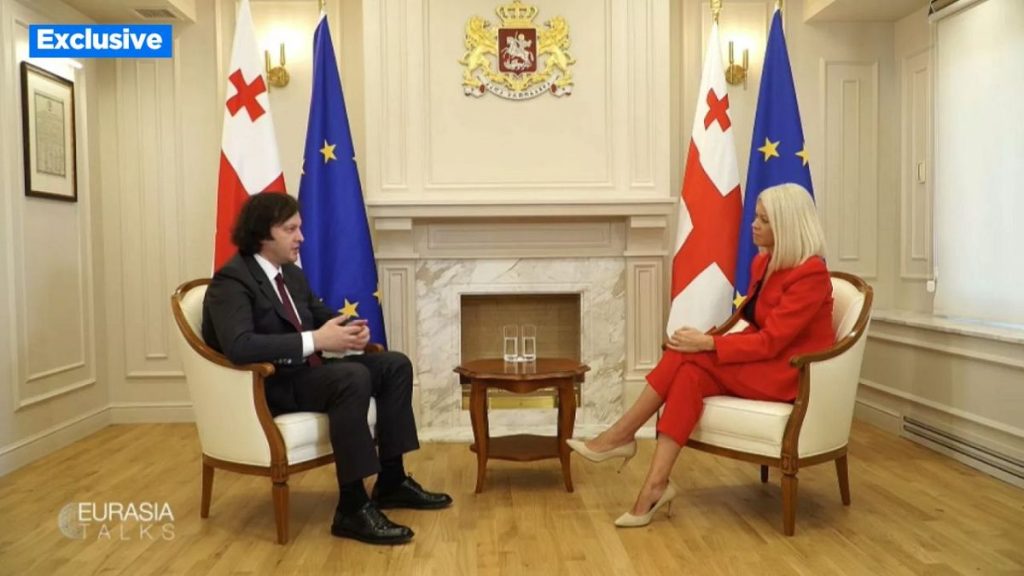Georgia is gearing up for crucial parliamentary elections on Sunday, with PM Irakli Kobakhidze emphasizing the country’s Christian history and aspirations for EU membership while dismissing Russian influence. The upcoming elections, the first to be held under a fully proportional system, are seen as a defining moment for Georgia’s future integration within the EU and its distancing from Russian control. The political atmosphere in Georgia has become increasingly polarized as the election approaches, with contradictory opinion polls making it difficult to predict the outcome. The ruling Georgian Dream party is presenting the vote as a choice between ‘peace and war’, while opposition parties view it as a battle between the democratic West and authoritarian Russia.
In an interview with Euronews, Prime Minister Irakli Kobakhidze discussed the significance of the upcoming elections in the context of Georgia’s EU accession talks and concerns about Russian influence. For Georgia, being part of Europe symbolizes a historic choice rooted in the country’s Christian heritage, with Europe historically protecting Christianity in Georgia. Being part of the European Union also holds the promise of increased prosperity and development for Georgians, making it a top foreign policy priority for the country. Kobakhidze emphasized the strong desire of Georgia and its people to become fully-fledged members of the European family, citing it as a key reason for their commitment to EU integration.
Despite concerns about foreign interference, Kobakhidze asserted that Russia does not hold significant influence in Georgia’s political landscape. He stated that there are no political parties or media outlets in Georgia where Russia enjoys influence, making it unlikely for the country to be impacted by external interference in its election process. This assurance comes as tensions rise in the region following controversial elections in other countries, such as Moldova, where Russia’s involvement in the political process has been a point of contention. Georgia, however, appears to be standing firm against external interference, ensuring the integrity of its democratic elections.
With the stakes high and the outcome uncertain, Georgia’s upcoming parliamentary elections have sparked intense debate and division among political parties. While the ruling Georgian Dream party frames the vote as a choice between maintaining peace and descending into conflict, opposition parties view it as a crucial moment in determining the country’s path towards EU integration and away from Russian influence. The conflicting narratives and unreliable opinion polls have added to the tension surrounding the elections, raising concerns about the potential for unrest or controversy following the results. As Georgia prepares to cast its votes on Sunday, the world watches closely to see how the country’s democratic process unfolds and what implications it may have for its future trajectory.
Prime Minister Kobakhidze’s interview with Euronews sheds light on Georgia’s enduring commitment to European integration and its determination to resist external interference in its political affairs. With a strong emphasis on the country’s Christian heritage and historic ties to Europe, Kobakhidze articulates the deep-rooted desire of Georgians to be recognized as full members of the European family. As Georgia navigates the complexities of its upcoming elections and grapples with the challenges of polarization and external pressures, the country stands at a critical juncture that could shape its future for years to come. As the world awaits the outcome of Sunday’s elections, Georgia’s path towards the EU and its stance on Russian influence will undoubtedly be closely scrutinized on the global stage.


